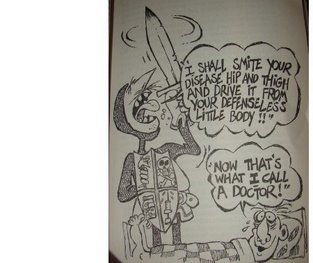Breast screening
SCREENING FOR BREAST CANCER: WHAT TO DO WITH THE EVIDENCE
Harris, R., Am Fam Phys 75(11):1623, June 1, 2007
The author, from the University of North Carolina and a member of the U.S. Preventive Services Task Force, addresses the continuing controversy regarding breast cancer screening. He notes that screening is, on the whole, beneficial among women aged 50-69, leading to a modest reduction in breast cancer mortality (number- needed-to-screen [NNS] to prevent one death after 14-years, 838). The potential benefit is less in women aged 40-49 (NNS 1,792), while there is little evidence regarding women over the age of 70, who have been excluded from most studies. Screening over the course of ten years in any of these groups can be expected to produce at least one false-positive test in about 50% of women, prompting anxiety and further (needless, but potentially harmful) procedures. In light of this evidence, the author recommends that screening (every two years) be encouraged for women aged 50-70. For women aged 40-49, however, he recommends discussion of the possible harms and benefits, to allow them to make an informed decision. He similarly recommends shared decision making for women over the age of 70, while acknowledging the impossibility of providing them with any clear information about benefits and harms. He also notes that patients with a strong family history should be referred for genetic counseling. Finally, he cites good evidence that breast self-examination is not useful and should be discouraged, and notes that there is insufficient evidence regarding a possible role for screening MRI or other newer radiographic techniques. 12 references (afpserv@aafp.org)
The above abstract comes from here
Article below comes from here
The first stirrings began last December, after The Lancet carried an article by two Danish scientists questioning the value of breast screening. Peter Gotzsche and Ole Olsen caused an outcry two years ago by suggesting screening did not save lives, after reviewing the results of seven trials involving 450,000 women. In a follow-up article last October, they repeated their analysis and said they were now even more sure their earlier claims were correct. They concluded that the small difference in deaths was caused by the way the trials were designed, not by any effect of screening.
Harvard gazette


No comments:
Post a Comment